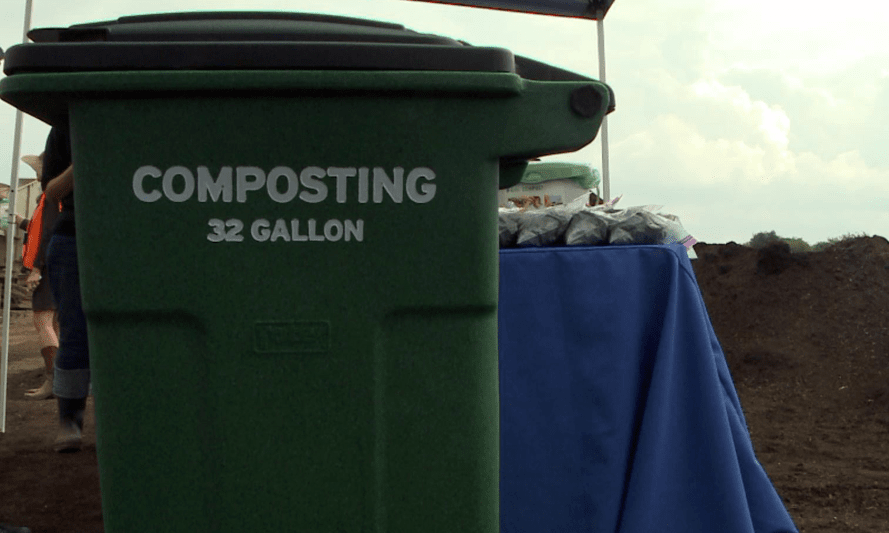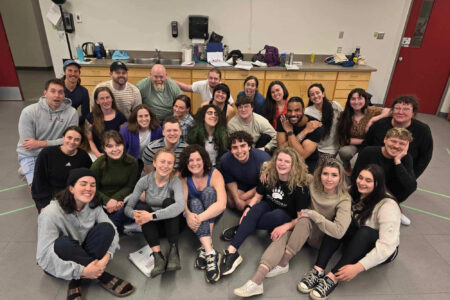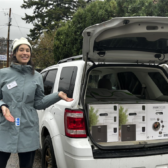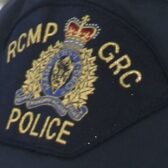City-wide compost program on the radar for consideration by regional district, city
A curbside composting program could be coming to the city if the results of an ongoing regional district survey prove positive.
City director of Public Works, Colin Inness, said there is currently a “potential opportunity for the community to consider diverting organics from the waste stream,” and that could take the form of several scenarios, including curbside pickup.
The regional district is currently considering composting and organics diversion as part of the Solid Waste Management Plan — the result of a provincial directive. Under the Environmental Management Act, a regional district can use its bylaw to regulate the management of municipal solid waste.
Since the city is linked to the Regional District of Central Kootenay (RDCK) through the Joint Resource Recovery Committee, if the regional district proceeds with implementing organics diversion as part of their updated Solid Waste Management Plan, then the city will be compelled to implement an organics diversion process to remain compliant with the materials that can be accepted by the regional district landfill.
The regional district is currently updating the Solid Waste Management Plan — expected to be fleshed out over the next 18 months — determining the direction of waste and recycling services for a 10-year period.
Toward this end, the regional district is also considering the establishment of a facility that would process the diverted organics, said Innes.
“At this time it is unknown if the RDCK will be able to successfully site and permit such a facility,” he said in his report to city council.
“In addition, the RDCK needs to evaluate if the projected volumes of diverted organic materials would make the establishment of such a facility viable.”
Innes said that although further study will be needed to nail down the cost of the various approaches for collecting compost that are available to the city, other municipalities where curbside collection is used shows automated collection appears to be the desired approach.
“Since diverted organics represent the heaviest part of the garbage (due to the high moisture content) it is believed that automated collection may be required for the collection of the heavy organics,” Innes noted in his report to council.
The regional district has stressed that an organics diversion strategy for food waste is a priority of the 2018 plan update, indicating that the composition of the waste stream breaks down in the following way:
- paper/plastic/metal recyclables: 39 per cent;
- compostable waste: 33 per cent;
- non-compostable organic waste: five per cent;
- building materials: five per cent;
- household hygiene: four per cent;
- electronics: four per cent;
- glass: four per cent; and
- other: six per cent.
Innes noted that if all compostable waste were diverted, it would save approximately one third of landfill space currently being used.
“With the difficulty in siting new landfill facilities, saving space within existing facilities will aid in extending the life of these facilitates,” he said. “In addition, the removal of compostable materials will aid in reducing leachate production and will help in reducing the generation of greenhouse gasses.”
The conversation concerning composting began in earnest in 2015 when the province released two new disposal targets for regional districts to incorporate in to their planning processes: to achieve a province-wide disposal rate of 350 kilograms per person per year; and have 75 per cent of B.C.’s population covered by organic waste disposal restrictions.
“The RDCK has indicated in discussions with the city that it intends to work towards achievement of both targets,” said Innes.
If the goals become part of the regional district’s Solid Waste Management Plan it would mean they would form part of the landfill permit and, therefore, would become a regulatory requirement, he added.
In order to assess if there is public support to include composting and organics diversion as part of the Solid Waste Management Plan, the RDCK has hosted a number of information sessions and has also created an online survey at:
http://www.rdck.ca/EN/main/services/waste-recycling/resource_recovery_plan.html
In addition to gauging whether people living in the region would be in favour of a composting program, the regional district has asked the city to see if it would be interested in pursuing organics diversion, Innes explained.
In order to keep informed of the process, Nelson city council voted to support organic diversion in principle and expressed a desire to be part of the ongoing discussions in “order to further assess the potential impacts to the existing curbside collection service level and budget,” as the details of the regional district plan become clear.

























